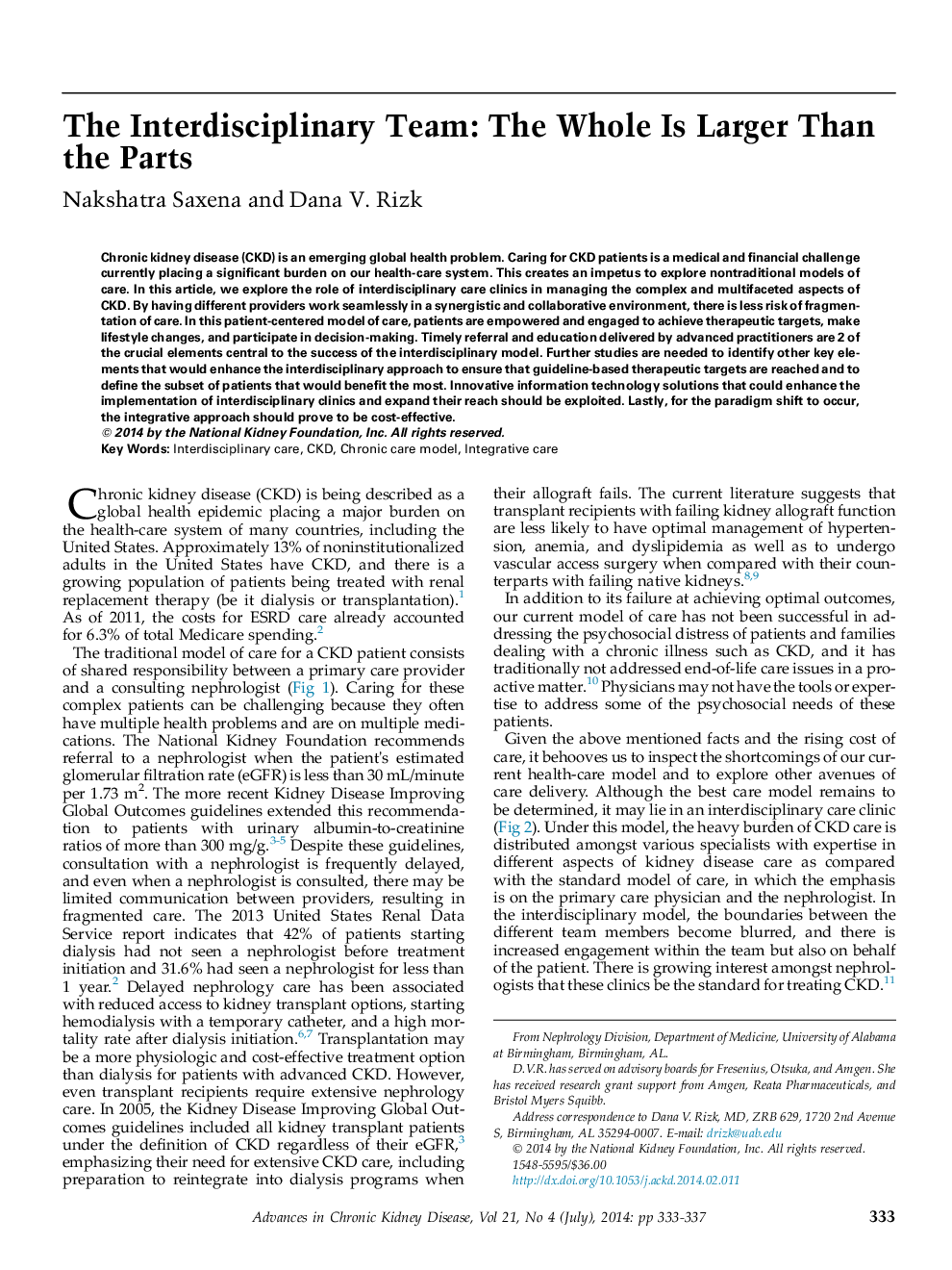| Article ID | Journal | Published Year | Pages | File Type |
|---|---|---|---|---|
| 3846464 | Advances in Chronic Kidney Disease | 2014 | 5 Pages |
Abstract
Chronic kidney disease (CKD) is an emerging global health problem. Caring for CKD patients is a medical and financial challenge currently placing a significant burden on our health-care system. This creates an impetus to explore nontraditional models of care. In this article, we explore the role of interdisciplinary care clinics in managing the complex and multifaceted aspects of CKD. By having different providers work seamlessly in a synergistic and collaborative environment, there is less risk of fragmentation of care. In this patient-centered model of care, patients are empowered and engaged to achieve therapeutic targets, make lifestyle changes, and participate in decision-making. Timely referral and education delivered by advanced practitioners are 2 of the crucial elements central to the success of the interdisciplinary model. Further studies are needed to identify other key elements that would enhance the interdisciplinary approach to ensure that guideline-based therapeutic targets are reached and to define the subset of patients that would benefit the most. Innovative information technology solutions that could enhance the implementation of interdisciplinary clinics and expand their reach should be exploited. Lastly, for the paradigm shift to occur, the integrative approach should prove to be cost-effective.
Related Topics
Health Sciences
Medicine and Dentistry
Nephrology
Authors
Nakshatra Saxena, Dana V. Rizk,
